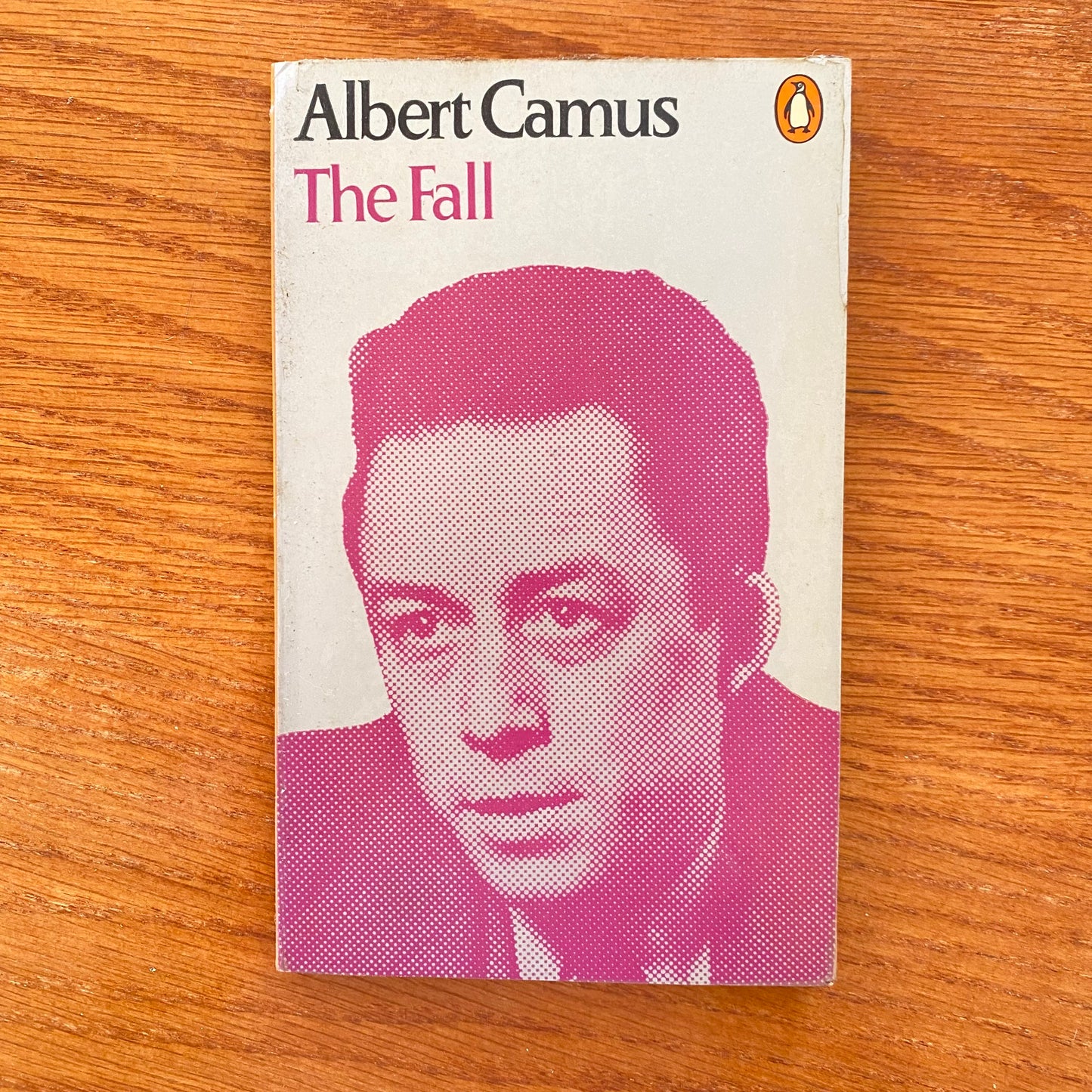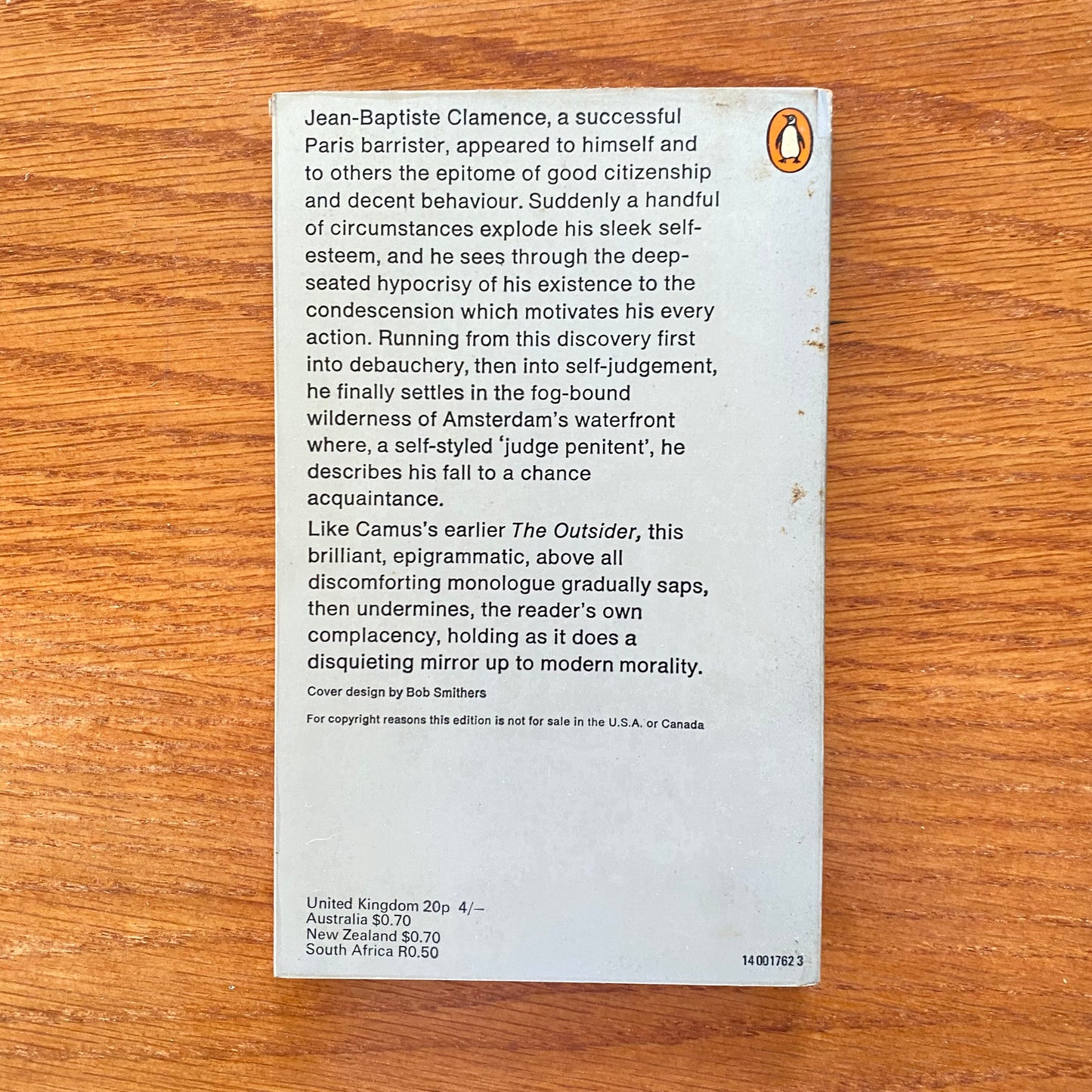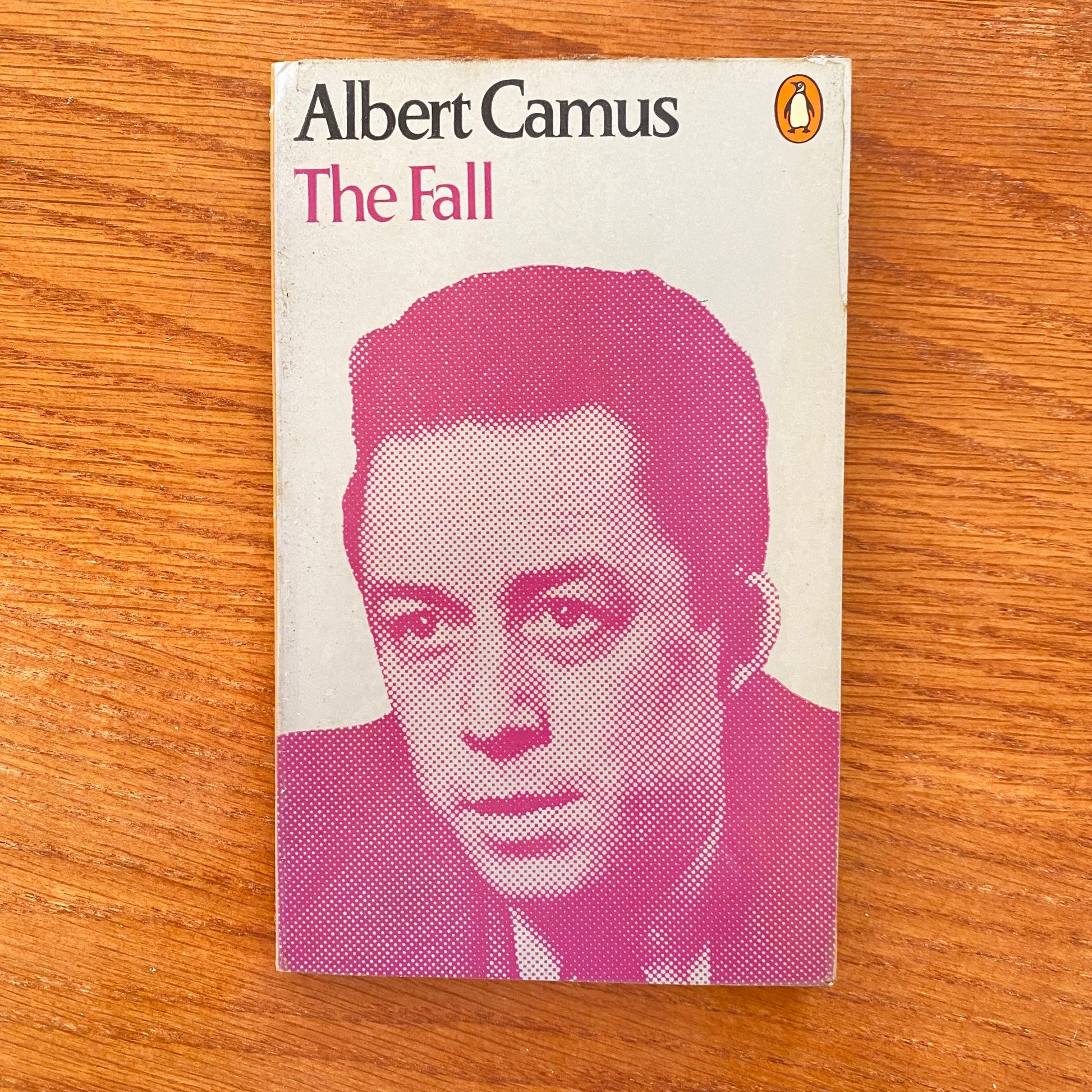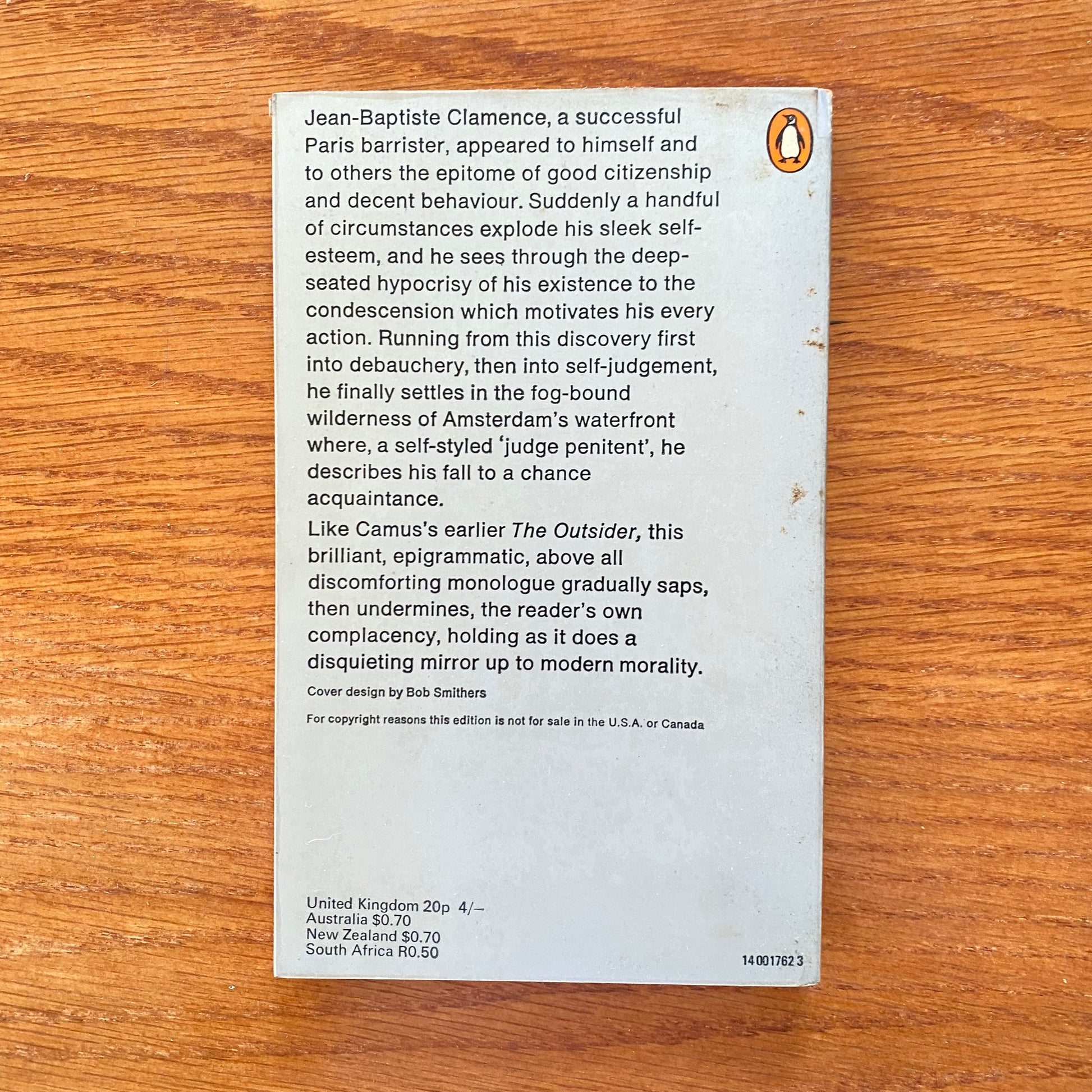Rumorbooks
Albert Camus - The Fall
Albert Camus - The Fall
Couldn't load pickup availability
Albert Camus’ The Fall (1956) is a philosophical novel that presents a deep exploration of guilt, judgment, and the nature of human existence. The story is narrated by Jean-Baptiste Clamence, a former successful lawyer living in Amsterdam who recounts his life to a stranger in a bar. Through Clamence’s confessions, the reader learns about his past as a charismatic, self-satisfied man who suddenly experiences a profound moral crisis.
The narrative unfolds as Clamence grapples with feelings of hypocrisy and shame after a chance encounter with a woman who takes her own life. This event prompts him to reflect on his own moral failings and the façade he maintained in society. Clamence’s musings lead him to conclude that he is both a judge and a condemned man, suggesting a duality of human nature and the burden of judgment that comes with self-awareness.
The Fall is characterized by its introspective style and rich philosophical content, touching on themes such as existential despair, the search for authenticity, and the complexities of human relationships. Camus uses Clamence’s character to challenge readers to confront their own ethical dilemmas and the often-contradictory nature of existence. The novel serves as a profound meditation on freedom, responsibility, and the moral implications of human choices.
Share




